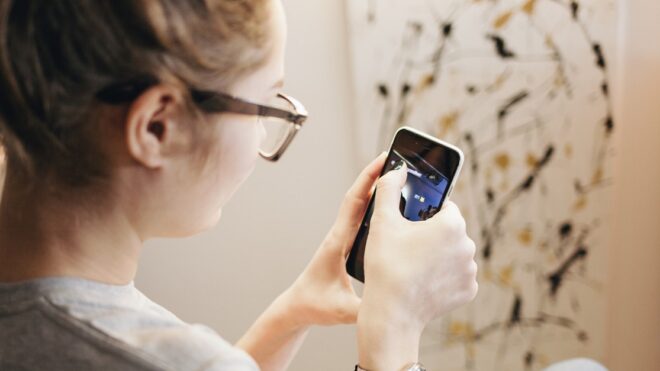
I got to hand it to the marketing team of Calgon bath powder. Getting people to buy into the idea that a bubble bath could take away a woman's, specifically a mother's, stress was genius. It was total crap but pretty smart. The inequality of work expected between men and women has been out of balance for a long time. And the health crisis has shown us how the invisible workload mothers carry is just as heavy as it was in 1978, when Calgon launched its ad campaign. The idea that women can have a family and a career yet are paid less and expected to do it all while having it all is exhausting. It takes a toll on our relationships and our mental health. The idea that any parent can do it all is unrealistic, so no matter how you identify, it's important to practice self-care with the intent that you are taking care of your mental and physical well-being, too.
I am not saying not to take a luxurious bath. If you can find uninterrupted time to enjoy that, then have at it. But self-care is not simply the act of soaking in the tub, treating yourself to a fancy coffee, or binging Netflix. No amount of Starbucks can absorb the mental load and emotional labor too many of us are drowning in.
Superficial timeouts are not the same as taking intentional steps to take care of our mental health. Parents, mothers especially, are always taking care of someone or something other than ourselves. We get into awful habits and cycles of sacrificing ourselves to make life easier for those around us and enabling others to rely on us to the point of our own suffering. When we do too much, we burn out; we become more pessimistic, less happy, more tired, and less optimistic. I become a shell of myself.
Self-care is caring about yourself enough to do what you need to do each day to stay well or work toward mental wellness. Yes, we all need to indulge and spoil ourselves from time to time or even daily. But those can be short-term rewards and distractions that mask or ignore problems that need more attention than a glass of wine or bowl of ice cream. I am asking you and giving you permission if you think you need it to reclaim some of the time you give so freely to other people so that you can take care of yourself in ways that lead to long-term gains.
Self-awareness and frequent check-ins allow us to stay healthy and balanced. The National Alliance on Mental Illness (NAMI) reports that 1 in 5 Americans struggle with mental health, yet less than half seek treatment. There is too much stigma still attached to taking care of our mental well-being, which is a shame, because when symptoms are not treated, their effects bleed into all areas of our lives. People with mental health disorders are at higher risk for metabolic and cardiovascular diseases, substance abuse, and unemployment. Taking care of ourselves and our mental health is not selfish. Not doing so hurts everyone.
I have boxes I check each day that help me stay mentally well. Besides the antianxiety and antidepressant meds I take each morning, I make sure to take an hour a day to exercise. I know not everyone can physically move their bodies in a way that I can, nor do I think movement alone will cure mental health struggles. However, exercise has always been my go-to for feeling better and grounded. I have relied on working out and getting in a good sweat at least once a day to keep me balanced. It gives me a chance to change the chemicals in my body, boosts my self-esteem, and makes me a better person. It also provides a bit of a routine and something to look forward to in the middle of this never-ending health crisis.
We all need something that is just ours that allows us time to unwind and think about what we really want and need. I know if I don't do this, I am far from my best self. I am withdrawn, irritable, resentful, and impatient. I am not the parent, friend, and partner I want to be. Knowing what I need helps me get what I want.
Extra time and money are privileges most don't have, but simply reaching out to a friend or family member can help you improve your emotional and mental health. If you can, talk to a doctor or therapist to help you find ways to define what your self-care needs to be. It may be medication, meditation, boundaries, more sleep, or a hobby.
Self-care should be more than a treat or a once-a-month splurge; it needs to be a daily effort toward a long game. If we can't be of service to ourselves, we can't help anyone else. Treat yourself by treating your brain to much-needed TLC.







